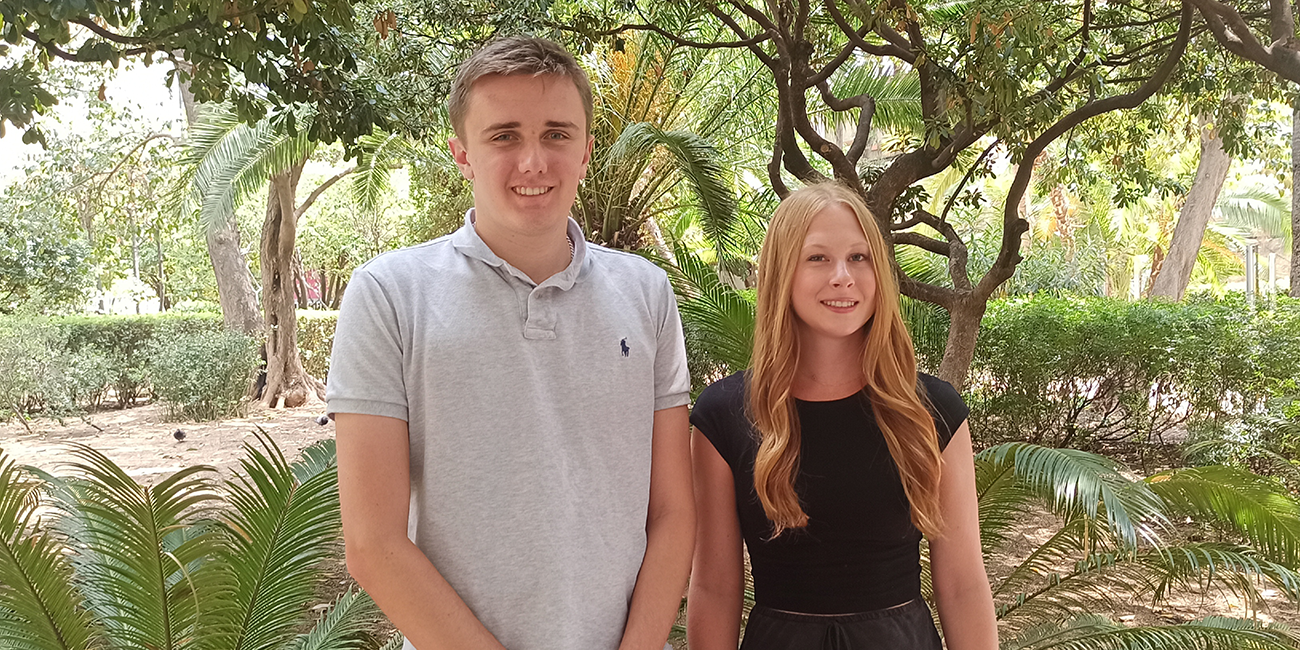
For the last 2 months we have had the pleasure of having Piper Leitch and Nicholas Pearse join our Healthcare Investing team as visiting analysts. Piper and Nick are two students from the United States of America who have crossed the Atlantic to learn about Impact Investing. We are glad they have chosen Ship2B Ventures for this purpose.
During this period, they explored the potential of impact investment to respond to the main challenges facing humanity, focusing on those related to improving quality of life and, in particular, the challenges faced by the global ageing population, as well as how would both patients and the healthcare system benefit from shifting the place were care if provided (from health centers to people’s homes).
The dependency ratio in Spain (number of people in non-working age divided by the people in working age) is meant to change from 25% in 2005, to 70% in 2050. This means that more people will be claiming pension benefits and fewer people will be working, which could lead to higher tax rates. There will likely be increased government spending on health care and pensions. The declining birthrate could save the government some on education costs but the shortage of working could result in wage inflation.
The Ageing economy will not only affect our seniors. In Europe, 26% of people over 65% are long-term dependents, and only 28% of them can be treated in their homes. This leads to a saturation of the European health system that automatically impacts all the population, by diminishing access to care and extending waiting lists.
Before they left, we took the opportunity to interview them to learn more about their perspectives on these crucial issues, what challenges they present for our society, and what opportunities they could represent for impact investing.
About Nick and Piper
Piper Leitch is an honors student at the University of Kansas studying Finance. She is from Lawrence, Kansas and her interests include reading and traveling. According to her, she chose Ship2B Ventures because “I am passionate about social impact and wanted to learn more about careers in Venture Capital”.
Nicholas (Nick) Pearse is a student at the University of Wisconsin-Madison studying Finance and Investment Banking. Even though he is originally from England, Nick has spent most of his life in Colombia and the United States. His interests include playing football (aka soccer), skiing and travelling. According to him, he chose Ship2B Ventures because he is “highly interested in venture capital career-wise and I also found myself motivated by the mission to invest in companies that will make a positive impact on the world”.
What are the main opportunities and challenges in impact investing for the aging economy?
(Piper) Seniors, aged 65 and above, will grow from representing $459 million to $760 million of the consumer class by 2030, a 66% increase. Within this market, there are opportunities in technology that improve physical, mental and social well-being. Older adults tend to have higher needs and will require significantly more long-term care than in previous generations due to lifespan and population size. Investments that improve their quality of life and make care more individualized and accessible will be valuable not only to them as users/consumers but also to society as a whole. The main challenge will be changing societal attitudes towards older adults and creating true equitable opportunities, regardless of age.
How do impact investment and home-based care intersect?
(Nick) Impact investment and home-based care intersect in two ways. Firstly, the market for at-home care is predicted to have massive growth in the coming years. In Europe specifically, the market is expected to have a CAGR of 9.5% until 2027. Secondly, and more importantly, the at-home care services that exist are not well established and, with the growing shortage of healthcare personnel, its use can provide more widespread and comfortable care.
What opportunities exist for impact investors in this sector?
(Piper): For the aging economy there are opportunities to improve physical health in areas like vision, hearing, and mobility. There are also social opportunities in entertainment and lifestyle services, connecting people, and age friendly housing. Mental health services are a large opportunity as well as many older adults struggle with isolation, depression, anxiety, and cognitive deterioration.
(Nick): In the home care market, there are investment opportunities within telemedicine, remote verification and monitorisation of appointments, wearables and chatbots. Particularly, diagnostic wearable technologies are likely to grow fast in the coming years.

It is projected that there will be close to half a million centenarians in the EU-27 by 2050.
Expand a little more on future prospects in mental health
(Piper): Mental health awareness is growing, especially since the pandemic, leading to more conversations about mental well-being. Technology focused towards individual care, workplace wellness, sleep, nutrition, and relaxation are emerging trends.
(Nick): Globally, the mental health market is growing steadily, however, in Europe, it is growing only at a measly CAGR of 0.45%. Yet, in the digital mental health service market, it is predicted to grow at a CAGR of 16%, showing its increase in popularity since the pandemic. Additionally, advancements in antidepressants and the use of psychedelics to combat post-traumatic stress disorders (PTSD) and major depressive disorders (MDD) could also represent great opportunities as this new market arises.
What role do you see technology playing in addressing the needs of the aging population and creating a sustainable impact within this sector?
(Piper): Advances in preventive care through artificial intelligence and technology have incredible potential to keep people in the workforce. They can help older people to continue living independently and personalize care. They have the ability to improve treatment and cognitive capacity. Technology also connects people across generations, can generate a sense of community, and allow older adults to maintain relationships, which is proven a key factor in people’s health.
(Nick): Due to the shortage of doctors and the aging population, technology will be vital in maintaining and, hopefully, improving the current standard of care. Between the growing number of telemedicine services and improvements in therapeutic and diagnostic equipment, technology can improve the quality of life of patients by giving them the comfort of being treated within their own home for a fraction of the cost of going to the hospital.
